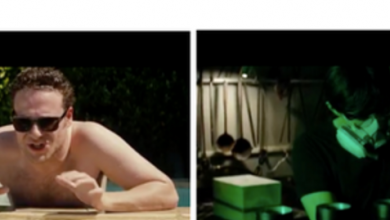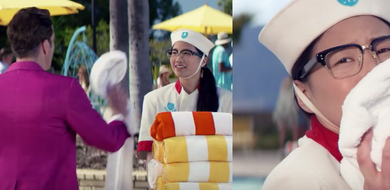Misrepresenting Misrepresentation
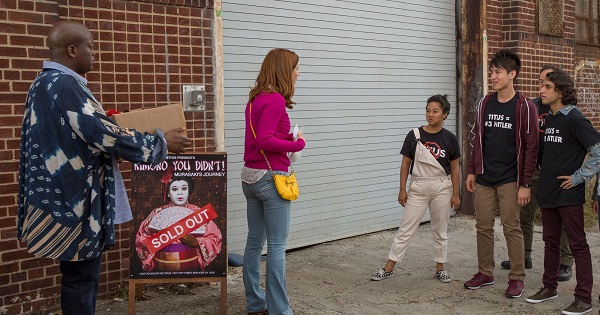
The representation of Dong Nguyen (played by Ki Hong Lee) – an undocumented Vietnamese immigrant who speaks with a heavy accent, delivers Chinese food by bike, is good at math, is constantly paranoid about being deported and unexpectedly serves as Kimmy’s love interest – garnered mixed reactions from Asian American viewers in season 1 of Tina Fey and Robert Carlock’s Netflix streaming sitcom, Unbreakable Kimmy Schmidt (2015).
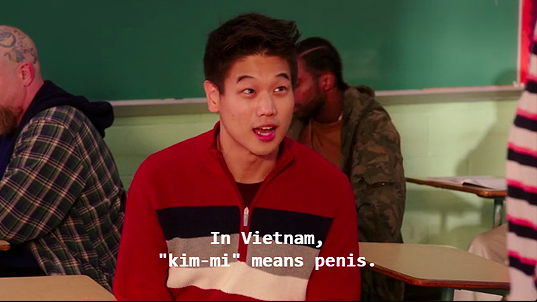
Episode 3 of season 2 of UKS (titled “Kimmy Goes to a Play!”), however, received a largely negative reaction. It is easy to see why.
The episode revolves around a provocative and absurdist storyline. Titus, Kimmy’s gay best friend, decides to stage a one-man show. Instead of staging a clichéd narrative where a “small-town boy moves to the big city to come out of the closet and become a star”, he decides to stage the story of Murasaki: his past Japanese geisha self (played by Kana Hatakeyama in a brief flashback). Titus also recalls past lives as a French nobleman who nearly invented raisins, the first openly gay slave, and a pup named Argos – but it is Murasaki that deserves to be represented in a play titled “Kimono You Didn’t!”
There is a moment where he wonders if this is appropriate, but he swiftly decides that it is: “Well, if Aisha Tyler can play a white woman on Friends, I guess it’s okay”. Titus’ sincere – albeit questionable and potentially insensitive – decision to partake in cultural appropriation (with full white face makeup, a kimono, a shamisen and the ability to convincingly sing the Takeda lullaby) is not the episode’s main problem.
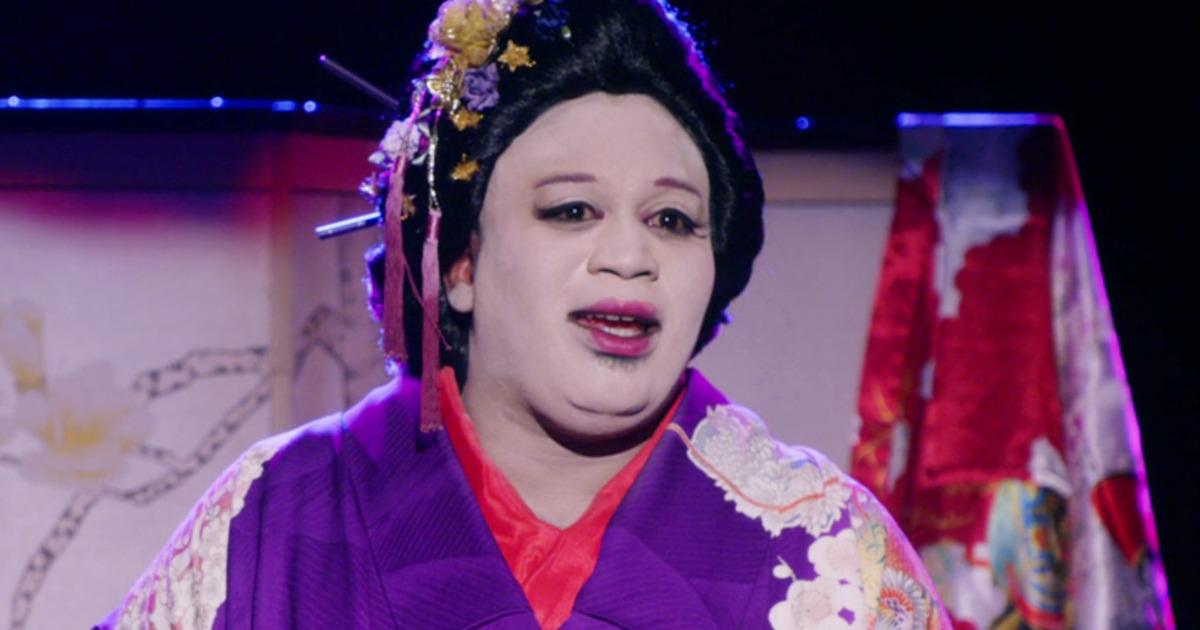
The offence lies in how Fey and Carlock decided to represent the reaction of the Asian American community to Titus’ stage play – a decision that has been widely interpreted as a reaction to the severe backlash the show faced after the season 1 revelation that Jacqueline Voorhees (played by Jane Krakowski, who is of Polish, French Canadian and Scottish descent) is “secretly” Native American.
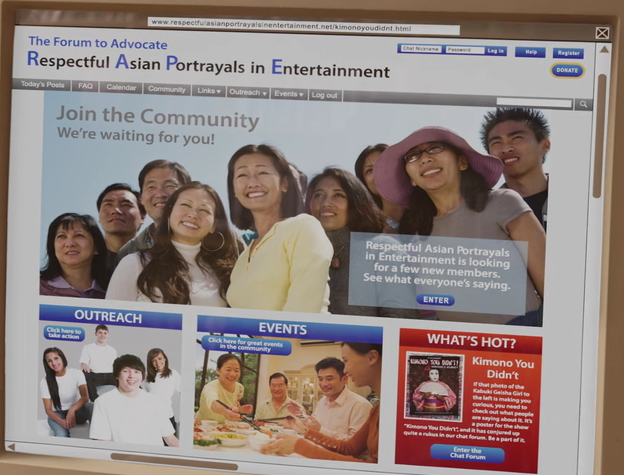
After he begins to promote “Kimono You Didn’t!”, Titus discovers that he has been labelled as an Asian-American anti-defamation league’s “top five Hitlers of all time”. Titus dismisses their concerns by labelling them as “just anonymous hosers criticizing geniuses”; Kimmy decides that the critics can be placated if Titus meets them in person.
When they appear, members of the Forum to Advocate for Respectful Asian Portrayals in Entertainment (R.A.P.E.) are depicted as being ‘too easily offended’ and immature (they all wear T-shirts with the words ‘TITUS = #3 HITLER’):
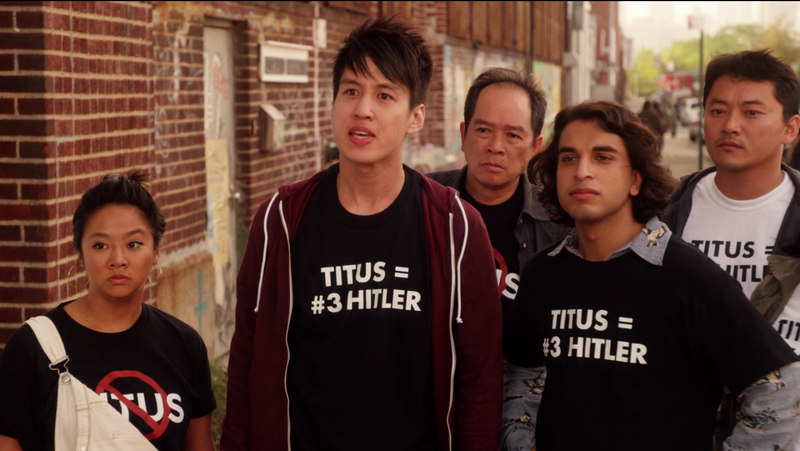
Masuta69 (Julian Leong): This show is an abomination. We’re going to boo you so loud, you won’t be able to hear yourself talk.
Female protester (Stephanie Hsu): Yeah, the whole portrayal is offensive. A geisha? Seriously?
Titus: But Murasaki really was a geisha!
Female protester: Why couldn’t she be a successful businesswoman? Or a college professor? Or a stay-at-home dad?
Kimmy: If you actually watch the whole show –
Masuta69: I don’t wanna hear the end of anything anyone has to say!
Titus: But this is about a past life I actually lived! I was Murasaki.
Masuta69: Past lives? That’s idiotic.
Indian protester (Nicky Maindiratta): Oh, so past lives are idiotic? Hindus are just as much a part of this organization as anyone! Probably more than this white guy!
White protester: I’m transracial, you dumb dick!
Titus: Oh God! They drew a Michael Jordan moustache on me! Why?

On the night of Titus’ play, he manages to touch the hearts of the audience – including all the Asian American protesters. The boos turn into rapt attention, and then applause.
Masuta69: That was beautiful. I haven’t heard that song since I was a little boy.
White protester: What do we do now that we’re not offended?
Female protester: Yeah, I feel weird. It’s like I can’t breathe. Wait. I’m not allowed to say that. I offended myself [disappears in a column of blinding light].
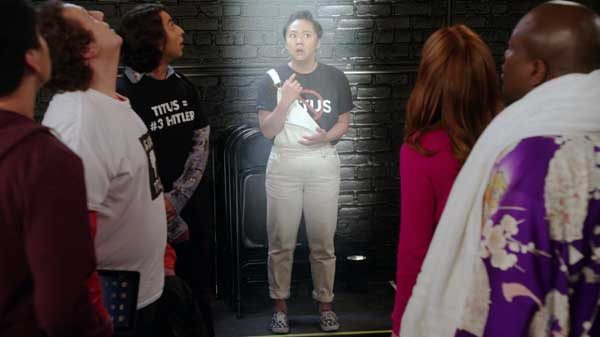
Titus’ geisha show thus becomes a vehicle to demonstrate that people who object to offensive portrayals of ethnic minority characters have little basis to be offended, and their views are unsubstantial and immaterial. But if all the Asian American community had to deal with was a one man community theatre play guided by a genuine belief in reincarnation, there would be little outrage in the first place. Salon’s Sonia Saraiya aptly notes the sombre reality that exists outside of UKS’ trademark cheeriness in taking on the issue of cultural appropriation and yellowface:
“If Asian-Americans worried about misrepresentation were to picket every single piece of pop culture that flattened, stereotyped, whitewashed, or otherwise erased their entire existence, they would have their hands full picketing classics like “Madame Butterfly” and “The Mikado,” when not highlighting every time a fashion designer or perfume advertisement drops the word “exotic.” They—we—have our hands full with Coldplay in China and Beyoncé in India, with Chris Rock seemingly pitting black people against Asian-Americans, with casting news that seemingly daily seems to erase the Asian experience from American cinema, whether that is Natalie Portman in “Annihilation” or Scarlett Johansson in “The Ghost In the Shell.” It’s difficult to imagine, with all of these other issues weighing on us, that any Asian-American activist would find the time to make an example of Titus’ one-man show in a dingy Greenpoint theatre”.
Fey has pointedly refused to address the criticism that her Native American subplot garnered: “The internet was in a whirlwind, calling it ‘racist,’ but my new goal is not to explain jokes. I feel like we put so much effort into writing and crafting everything, they need to speak for themselves. There’s a real culture of demanding apologies, and I’m opting out of that.” With this episode, she solidifies her stance by vilifying the people who ‘write and craft everything’ and trivializing the critics and ethnic minority communities whose lives may be negatively impacted by how they are portrayed in mainstream media.
This staunch refusal to address the audience’s concerns is part of the problem – as is the episode’s attempt to invalidate and trivialize marginalized voices. For all its edge, wit and willingness to take on challenging issues, UKS has done little to address the thorny question of how ethnic minorities are represented (or not represented) in a white-dominated media industry. Mallika Rao thus raised a relevant concern when she pointed out how the episode, in spite of its vision of a future where racial politics can be readily transcended, could potentially create yet another damaging stereotype: “I fear that episode just created a new stereotype for studio execs to run wild with — the ‘Asian American outrage blogger”.
-
OFFENDER: Netflix
CATEGORY OF OFFENSE: Denigration ( Mockery of Asians)
MEDIA TYPE: TV Show
OFFENSE DATE: April 1, 2016

